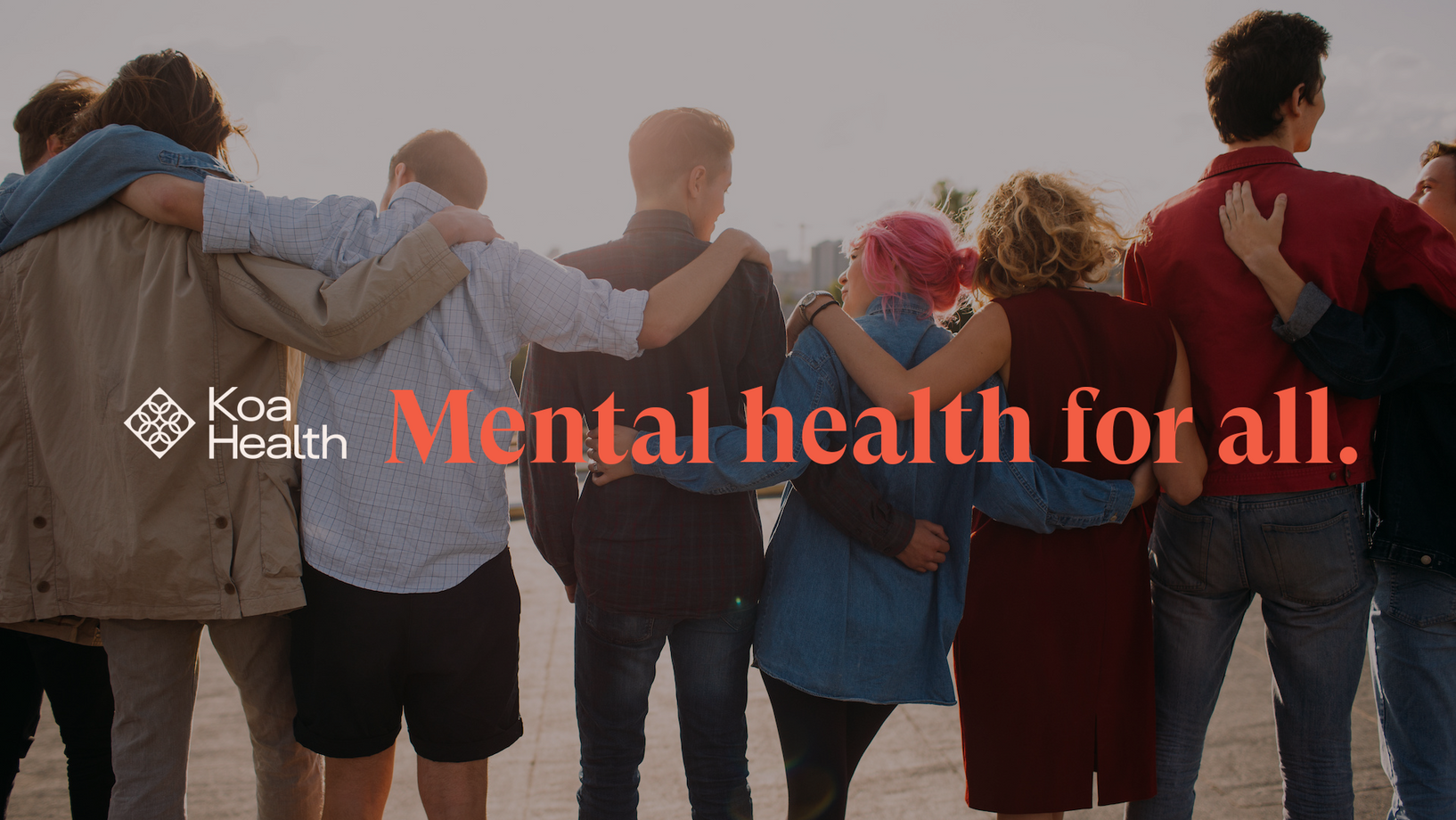State of the Union: Mental Health for All
- Authors
- Koa Health
- Publish Date
Between our fast-paced pre-COVID lifestyles and the isolation, fear and unprecedented change we’ve collectively endured over the last two years, the mental health of our country—and the world at large—has reached critical levels.
The fragmented and expensive U.S. healthcare system has put mental health on the backburner. Whether it’s due to stigma, inability to access care, financial strain, or lack of awareness, less than half of Americans who struggle with their mental health receive the treatment they need.
In short, we’re losing the battle on mental health support, and something needs to change—fast.
The current state of mental health in the U.S.
The United States was heading towards a mental health crisis long before COVID turned our world upside down. Then the pandemic hit, putting us on a fast track to our nationwide breaking point. Now, two in five adults are reporting symptoms of depression or anxiety, a 300% increase from pre-pandemic levels. What about those who are struggling silently?
Rethinking our approach to mental health care
Putting the spotlight on mental health in the media, in the workplace and in the community was a great start to eliminating the stigma, but we can’t stop there.
In his State of the Union address, President Biden announced a plan to transform how we understand and approach mental health. By creating a holistic and equitable healthcare infrastructure that supports mental wellbeing, Americans—regardless of age, health status or zip code—will have the opportunity to achieve their optimal health.
“Let’s get all Americans the mental health services they need.” - President Biden
Strengthen System Capacity
The first step toward tackling the mental health crisis is to address the alarming shortage of mental health care providers and how they operate within a fragmented system. There simply aren’t enough therapists to go around. And even if there were, the current state of things doesn’t allow providers to meet people where they are, when they need it most.
Expanding the capabilities of our mental health services is also crucial to addressing the mental wellbeing of our frontline workers. The pandemic has taken a massive toll on the mental health of the industries that have served on the frontline over the last two years: 3 in 4 frontline health care workers are experiencing burnout, and more than half don’t have the proper resources available to manage their mental health.
The administration plans to invest in programs that will increase the number, diversity and availability of behavioral healthcare providers and enhance community-based support. But we can't stop there. Koa Health is excited to lead the way along the movement to innovate around our fragmented and complex healthcare system with digital first solutions.
Connect Americans to Care
Stigma, cost, lack of understanding, limited accessibility—these are just a few of the factors that are preventing Americans from seeking mental health care. A 2021 survey of 45,000 people revealed that 45% of individuals with a clinical-level mental health challenge do not seek professional help, citing preference for self-help and a lack of confidence in the current mental health treatment options.
President Biden’s proposal to expand mental health benefits and services—including in primary care settings and digital and tele-mental health modalities—is long overdue. Many Americans, especially historically marginalized communities, need more accessible, affordable, and effective options to help them both manage symptoms of mental health challenges and build resilience.
Support Americans by Creating Healthy Environments
While stress levels and mental health risks have steadily risen across all populations in recent years, some Americans were more susceptible to poor mental health outcomes than others. Personal experiences throughout the pandemic varied greatly by things like job function, prior health status, social support networks and location, all of which fall under the social determinants of health.
Social determinants of health (SDOH) are the conditions in which we live, grow, learn, work and socialize. In other words, our environments significantly influence our health outcomes.
Marginalized populations are historically undersupported, thanks in large part to systemic barriers or limited access to care in their communities. Establishing healthy environments and communities is essential to creating a more equitable country.
Scalable and accessible care for all
In the words of President Biden, the time is now. Mental health must be a top priority in America and around the world. That means integrating mental wellbeing into our daily lives and healthcare systems to create a continuum of support that effectively addresses the struggles people face today and in the future.
A transformation of this scale takes time, but mental health can’t wait. Employers are uniquely positioned to support the mental wellbeing of their workforce, and they can act now.
Investing in the mental wellbeing of employees is a great way to show that your company cares about its people. We developed Koa Foundations to help organizations quickly and easily put the mental health of their workforce first. By taking a digital-first, science-based approach to mental health, employees can access the resources and support they need, whenever and wherever they need it.
With Foundations, mental strength is at your fingertips.
Ready to rethink your organization’s approach to mental wellbeing? Contact us at info@koahealth.com, or schedule a call with one of our experts, here.
about the author

Koa Health
The Team @ Koa Health
Our diverse team of developers, researchers, psychologists and behavioral health experts work together to create practical, thought-provoking content to accompany our range of digital therapeutics.
